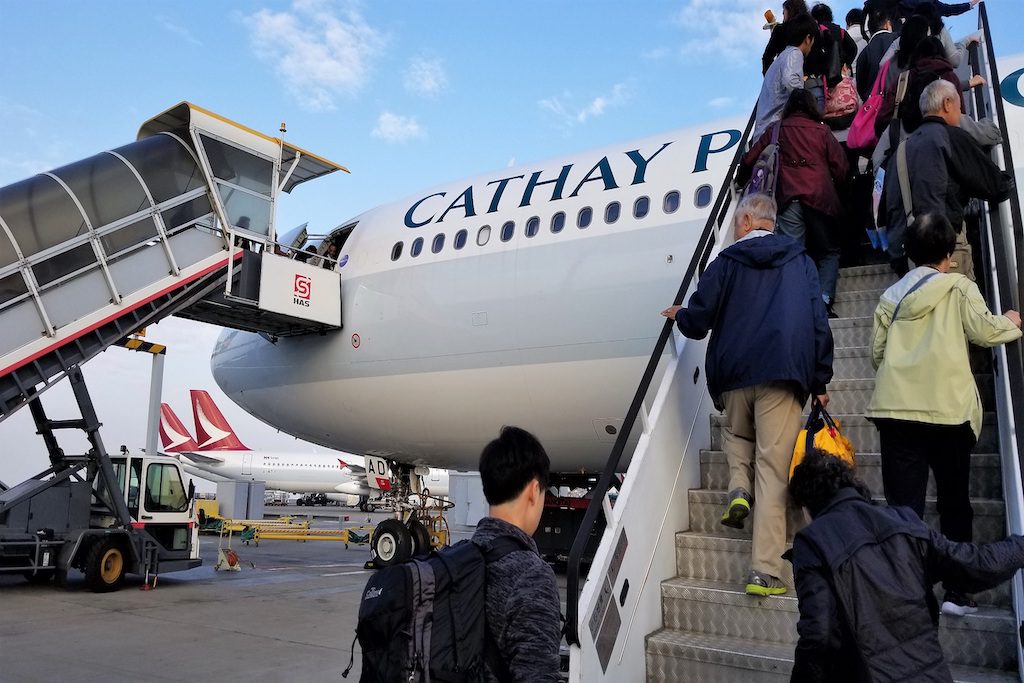Skift Take
Will new travel management platforms emerge in Asia as they have elsewhere in recent years? Fragmentation and the digital habits of Asian travelers will make it an interesting challenge.
Upstart travel management platforms in North America and Europe are inspiring similar efforts in Asia.
Skift’s Asia Editor Raini Hamdi takes a look at how disruptors in Asia-Pacific are looking to bring managed travel to the region, which is currently about 90 percent unmanaged, according to some. Travelstop is taking a fascinating approach to crack a fragmented and diverse market.
In other news, Enterprise Holdings acquired Deem last week, becoming a logical landing point for the sometimes-listless technology company. A new focus on ground transportation has paid off, it seems.
If you have any feedback about the newsletter or news tips, feel free to reach out via email at [email protected] or tweet me @sheivach.
— Andrew Sheivachman, Senior Editor
Airlines, Hotels and Innovation
Travelstop Counts on Asian Startups to Unlock New Era in Corporate Travel: For over a decade, corporate travel management companies have been trying to pry open the huge market in Asia but have hardly made a dent. Travelstop says now is the time, as the market is full of high-growth startups that will “get it.” Perhaps such new players will finally disrupt the space.
Asian Airlines Turn to Super Business Suites Rather Than First Class: Asian airlines still cling to first class, but is the product necessary anymore? Some carriers are rethinking their strategies.
Brands Give Travelers More Control Over Their Experience: Creation is the new consumption, as travelers weary of commodity travel seek to have a more active role in curating their experiences, and digital platforms more seamlessly mediate in-trip discovery, increasing the opportunity for serendipity.
Enterprise Expands in Corporate Travel With Deem Acquisition: The long saga of Deem looks to have come to an end. One has to wonder if the investors who shelled out to fund the company for the last 20 years will be happy with the return, though.
Marriott Loyalty Rebrand Enables Everyone to Move On With the Merger: In February, Marriott will unite its former three loyalty programs under a new flagship brand called Marriott Bonvoy.
The Future of Travel
Recession Watch: The Debt Load of the Travel Industry’s Public Companies: When it comes to their debt, easyJet has a much more liquid position than Ryanair, while United and Delta have a lighter debt burden relatively speaking than American Airlines. In the event of a recession, debt loads would be one critical factor among many in hamstringing or contributing to a company’s ability to maneuver.
Esports Disrupt How Brands and Events Engage With Their Communities: How organizations and events build communities is shifting with new digital networks and the evolution of how people interact online. The culture and growth of esports represent a window into how these changes will affect associations, businesses, and the event sector at large.
U.S. Airline Revenue Growth Will Slow in 2019: Skift Research’s proprietary U.S. airline estimates provide market shares for all major carriers as well as industry overviews by product line and key operating statistics.
SUBSCRIBE
Skift Senior Editor Andrew Sheivachman [[email protected]] curates the Skift Corporate Travel Innovation Report. Skift emails the newsletter every Thursday.
Subscribe to Skift’s Free Corporate Travel Innovation Report
The Daily Newsletter
Our daily coverage of the global travel industry. Written by editors and analysts from across Skift’s brands.
Have a confidential tip for Skift? Get in touch
Tags: business travel, corporate travel, ctir
Photo credit: Passengers boarding a Cathay Pacific aircraft. Much of Asia's business travel is unmanaged in terms of strict company policies. Slices of Life / Flickr

